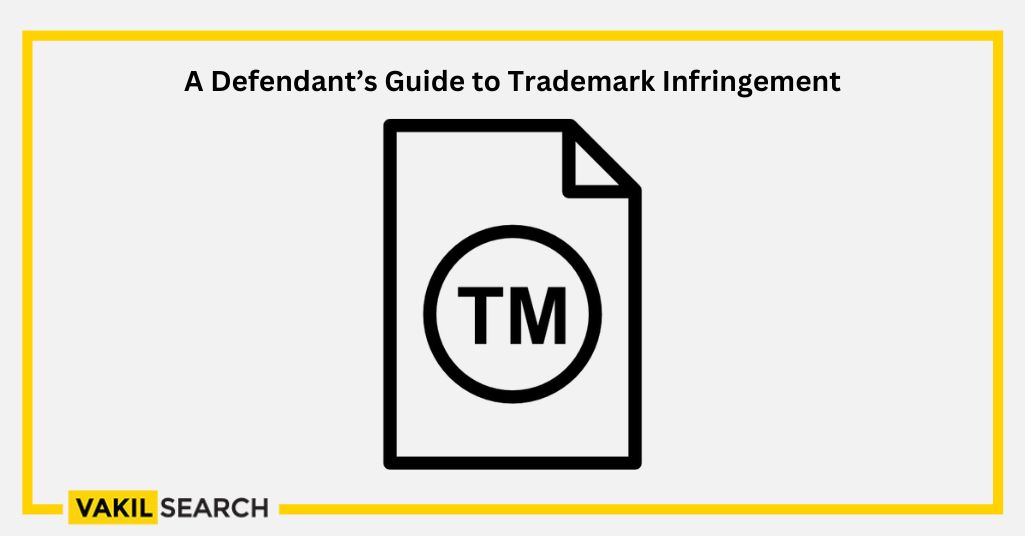This blog discusses trademark infringement, including liability considerations, the connection between trademarks and passing-off allegations, possible counterarguments, and the repercussions of trademark law violations. The blog stresses the significance of brand protection and the need to avoid trademark infringement in order to avoid negative legal and financial repercussions.
Introduction:
Trademark infringement is a serious legal issue that involves unauthorized use of a registered trademark, which can cause confusion among consumers and harm the rightful owner’s brand reputation. This guide aims to provide defendants with a clear understanding of trademark infringement, its types, implications, acts constituting infringement, consequences, claiming infringement, defenses, and the consequences of breaching trademark law.
What is Trademark Infringement?
Trademark infringement occurs when someone uses a trademark that is identical or similar to a registered trademark without obtaining proper authorization from the trademark owner. This unauthorized use may lead to consumer confusion, dilution of the trademark’s distinctiveness, and loss of business opportunities for the rightful owner.
Types of Trademark Infringement:
There are several types of infringement, including direct infringement, contributory infringement, and vicarious infringement. Direct infringement refers to the unauthorized use of the trademark itself, while contributory infringement involves aiding or facilitating another party’s infringing activities. Vicarious infringement occurs when someone benefits from and has the ability to control the infringing use.
Implications of Trademark Infringement:
Trademark infringement can have severe consequences for both the defendant and the rightful trademark owner. It may result in legal action, potential financial damages, and harm to the defendant’s business reputation. In some cases, the court may issue injunctions to prevent further infringement.
Acts Constituting Trademark Infringement:
It can encompass various acts, including unauthorized use of a similar trademark on goods or services, selling counterfeit products, using confusingly similar domain names, and engaging in false advertising that misleads consumers.
Consequences of Trademark Infringement:
The consequences can be significant. Defendants may be required to pay damages to the trademark owner, surrender profits made from the infringing activities, and even face criminal penalties in some jurisdictions. Additionally, the court may order the destruction of counterfeit goods.
Claiming Trademark Infringement:
If you believe your trademark has been infringed upon, you should consult with a legal professional experienced in intellectual property law. They can help you gather evidence, file a complaint, and initiate legal proceedings against the infringing party.
Defenses to Trademark Infringement Claim:
Defendants in cases can use various defenses, such as fair use (using the trademark for descriptive or informational purposes without intending to deceive consumers), parody, non-commercial use, and lack of likelihood of confusion.
Handling Trademark Infringement:
If you find yourself facing a infringement claim, it is essential to take the matter seriously. Seek legal counsel immediately to understand your rights and options. Do not ignore any legal notices, as doing so could escalate the situation.
Limitation in Trademark Infringement:
In some jurisdictions, there may be a statute of limitations for bringing a infringement claim. This means that there is a time limit within which the rightful trademark owner must file a lawsuit against the infringing party.
Defenses of Trademark Infringement:
Defendants in trademark cases can use various defenses, such as fair use (using the trademark for descriptive or informational purposes without intending to deceive consumers), parody, non-commercial use, and lack of likelihood of confusion.
Consequences of Breaching Trademark Law:
Breaching trademark law can lead to severe consequences, including monetary damages, legal expenses, injunctions, and damage to the defendant’s business reputation. Additionally, repeat offenders may face more severe penalties.
Conclusion
Trademark infringement is a critical issue that can have significant legal and financial ramifications for defendants. It is essential for individuals and businesses to understand trademark laws and ensure they do not violate the rights of trademark owners. Seeking legal advice and acting promptly when faced with a claim is crucial in protecting your rights and interests.
Also, Read:

